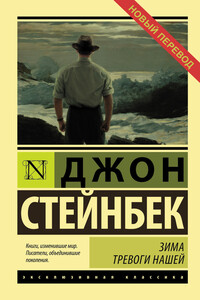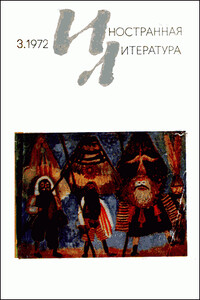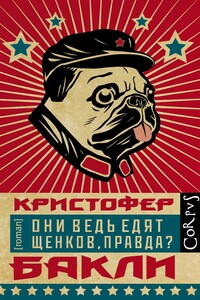Once there was a war | страница 9
For what they are worth, or for what they may recapture, here they are, period pieces, fairy tales, half-meaningless memories of a time and of attitudes which have gone forever from the world, a sad and jocular recording of a little part of a war I saw and do not believe, unreal with trumped-up pageantry, so that it stands in the mind like the battle pictures of Crécy and Bunker Hill and Gettysburg. And, although all wax is a symptom of man’s failure as a thinking animal, still there was in these memory-wars some gallantry, some bravery, some kindliness. A man got killed, surely, or maimed, but, living, he did not carry crippled seed as a gift to his children.
Now for many years we have suckled on fear and fear alone, and there is no good product of fear. Its children are cruelty and deceit and suspicion germinating in our darkness. And just as surely as we are poisoning the air with our test bombs, so are we poisoned in our souls by fear, faceless, stupid sarcomic terror.
The pieces in this volume were written under pressure and in tension. My first impulse on rereading them was to correct, to change, to smooth out ragged sentences and remove repetitions, but their very raggedness is, it seems to me, a parcel of their immediacy. They are as real as the wicked witch and the good fairy, as true and tested and edited as any other myth.
There was a war, long ago—once upon a time.
England
TROOPSHIP
SOMEWHERE IN ENGLAND, June 20, 1943—The troops in their thousands sit on their equipment on the dock. It is evening, and the first of the dimout lights come on. The men wear their helmets, which make them all look alike, make them look like long rows of mushrooms. Their rifles are leaning against their knees. They have no identity, no personality. The men are units in an army. The numbers chalked on their helmets are almost like the license numbers on robots. Equipment is piled neatly—bedding rolls and half-shelters and barracks bags. Some of the men are armed with Springfield or Enfield rifles from the First World War, some with M-1s, or Garands, and some with the neat, light clever little carbines everyone wants to have after the war for hunting rifles.
Above the pier the troopship rears high and thick as an office building. You have to crane your neck upward to see where the portholes stop and the open decks begin. She is a nameless ship and will be while the war lasts. Her destination is known to very few men and her route to even fewer, and the burden of the men who command her must be almost unendurable, for the master who loses her and her cargo will never sleep comfortably again. He probably doesn’t sleep at all now. The cargo holds are loaded and the ship waits to take on her tonnage of men.






